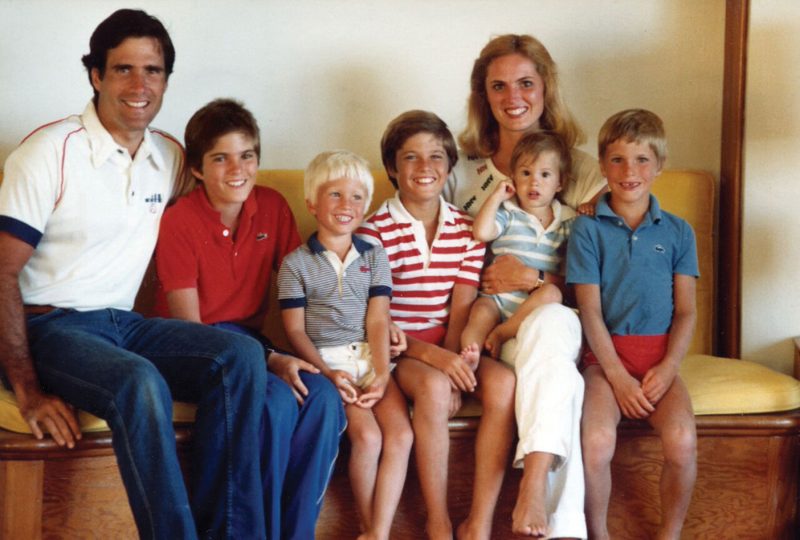Forty Years On
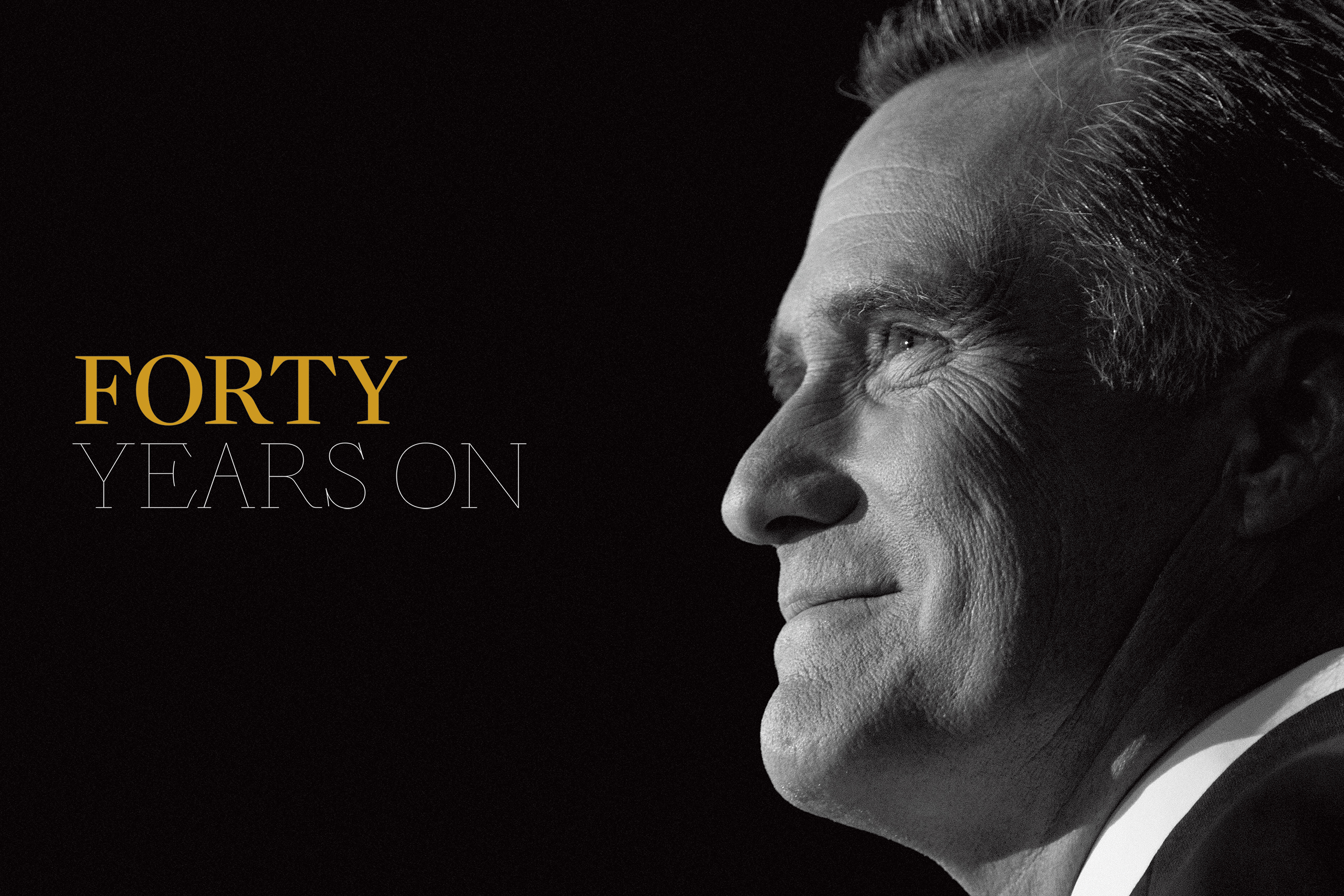
In 42 years since W. Mitt Romney (BA ’71) graduated in English from BYU, his journey has seen mountains and valleys.
By W. Mitt Romney (BA ’71) and Brittany Karford Rogers (BA ’07) in the Winter 2013 Issue
In 42 years since W. Mitt Romney (BA ’71) graduated in English with the highest honors from BYU, his journey has seen mountains and valleys. He climbed to the top of the management-consulting and venture-capital world, lost a bitter Senate campaign, rallied the troubled Salt Lake Olympics, and served a term as Massachusetts governor. With his eye on the U.S. presidency, he endured the buffetings of media scrutiny and garnered equal measures of derision and devotion from across the political spectrum. He won the nomination of a major party—a first for a BYU alum or a Mormon—but eventually lost his bid for the presidency in a narrow popular defeat.
In the following essay, taken from an address given at the April 1999 Marriott School convocation, Romney explores aspirations and disappointments, failure and success, and standards for judging life’s journey.
You cannot imagine how strange it is to be standing here speaking to you when I remember so distinctly sitting where you are sitting, listening to speakers far more sage than I.
For some reason my graduations have stood out quite clearly in my mind. I remember where I sat, by whom, and what I heard. Perhaps that’s because of a song we regularly sang at my Michigan high school and its graduation. As I sang that song at graduation, I pondered about the future, about time. I wondered what it would be like to look back to this very day: Would I regret my life? Would I be satisfied?
The song we sang is the Harrow School song, that of a private boys school in England. A few of its words are
Forty years on, when afar and asunder
Parted are those who are singing today,
When you look back, and forgetfully wonder
What you were like in your work and your play,
Then, it may be, there will often come o’er you,
Glimpses of notes like the catch of a song—
Visions of boyhood shall float them before you,
Echoes of dreamland shall bear them along. . . .
Routs and discomfitures, rushes and rallies,
Bases attempted, and rescued, and won,
Strife without anger, and art without malice,—
How will it seem to you, forty years on? . . .
God give us bases to guard or beleaguer,
Games to play out, whether earnest or fun;
Fights for the fearless, and goals for the eager,
Twenty, and thirty, and forty years on!
How will it seem to you 20 and 30 and 40 years on? What bases will you have chosen to conquer? What games will you have played? Will your life have been a success?
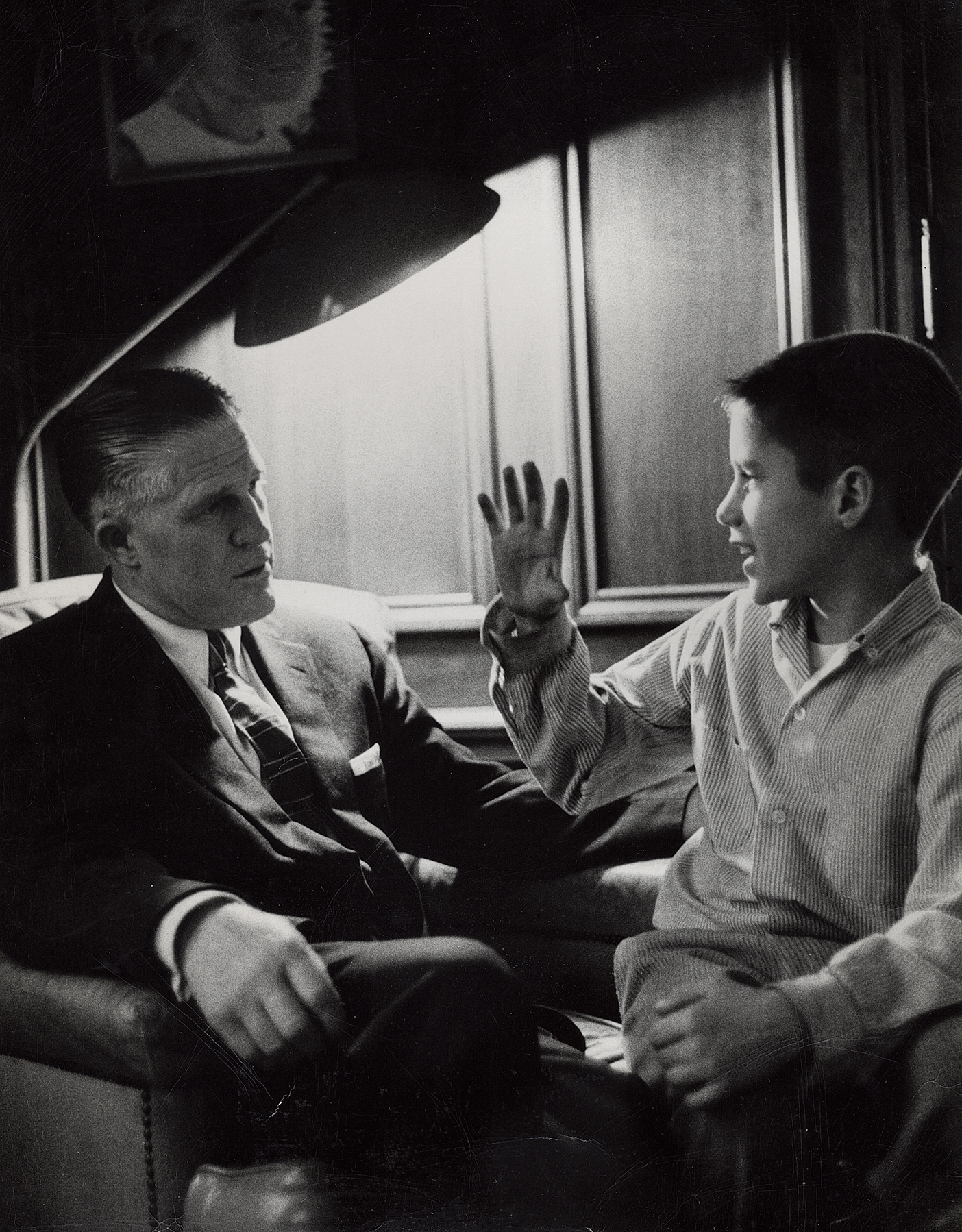
To be honest, these questions were very troubling to me as I sat where you are sitting today. Virtually every speaker said something to the effect that life’s success was in my control. They quoted authors like Napoleon Hill, who wrote Think and Grow Rich. Success, they said, was up to me—how I prepared and worked, how I thought, how I created and followed a mission statement, or how I put it all together would ensure the success they knew I wanted.
Now, 30 years on, I have come to a very different conclusion. The worldly success stories I have seen result from a blend of factors: yes, the choices you make and control but also the mental equipment you were born with, more than a fair measure of serendipity, and, where He does choose to intervene, the will of our loving Father. I am not convinced that it’s all up to you. Nor do I believe that if you live righteously, your stocks will rise in value, you’ll get a promotion, you’ll win an election, or you’ll get your research published.
I watched my cousin train for the Olympics virtually all his life. He ate right, exercised almost obsessively, competed through college, and placed in national and international competitions. But he got the flu during the Olympic trials and didn’t make the U.S. Olympic team—a little unfortunate serendipity at play. I have witnessed the same, time and again, in business, politics, health, entertainment, and education.
I contrast that with a friend I worked with at Bain & Company. She bounced from Bain to Disney in California, then to FTD Florists in Detroit, to Stride Rite Shoes in Boston, and to Hasbro Toys in Providence, R.I. A couple of years ago, a friend called her to ask if she’d help out in his new Internet business. Today, I understand her holdings in eBay have reached almost $1 billion in value. I’m sure that when a success book is written about her life, it will all look so predictable.
There’s an element of unpredictability, of uncertainty, of lottery, if you will, in the world that has been created for us. If you judge your life’s success by the world’s standards, you may be elated or you may be gravely disappointed.
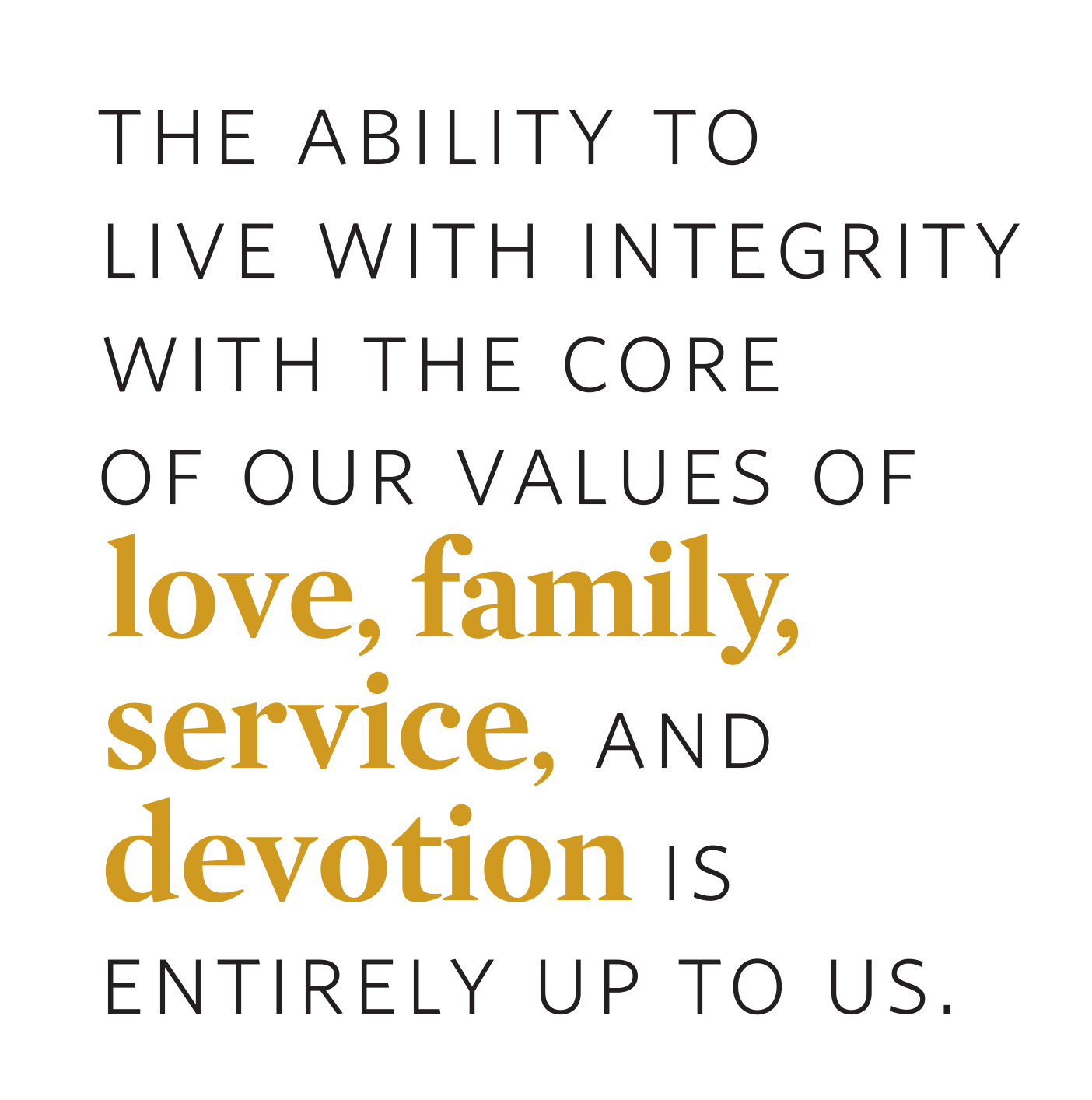
That, of course, is the secret to predictably successful living: the choice of standards by which you will judge your life’s success. If you judge by the world’s standards, you may well be disappointed, for too many factors for such success are random or out of your control. But there are other standards of success, where chance is not at play.
What will you live for? What bases will you attempt to win?
Some years ago, the firm I founded seemed to be coming apart at the seams. Our five partners were at each other’s throats. It seemed we all wanted different things from our lives and from our business. One was consumed with making money; he was obsessed with becoming a member of the Forbes 400. Another wanted power and control. I was of two minds, trying to balance the goals of my faith with the money I was earning. We met with a team-building consultant-psychologist. At the last of our weeklong sessions, he led us to something transforming.
He said that if we lived our lives in conflict with our core values, we would experience stress, ill health, and deep regret. How, we asked, could we know what our core values were? He proceeded to ask us to think of the five or six people we most admired and respected, people currently living or who had ever lived. I chose the Master, Joseph Smith, Abraham Lincoln, and my mother, father, and wife. Then he asked us to write down next to each of those names the five or six attributes we thought of when we thought of that person. The attributes that we had then listed most frequently, he explained, represented our core values. Simply, if we lived in concert with those values, we lived with integrity. We would be happy and fulfilled. And, in contrast, if we lived in a way that was not consistent with those core values, we would ultimately be unfulfilled and unhappy.
To my surprise, all five of my partners revealed the same or similar values: love, family, service, devotion. While we each may have pushed them aside to a different degree in our daily pursuits, they were at each of our centers.
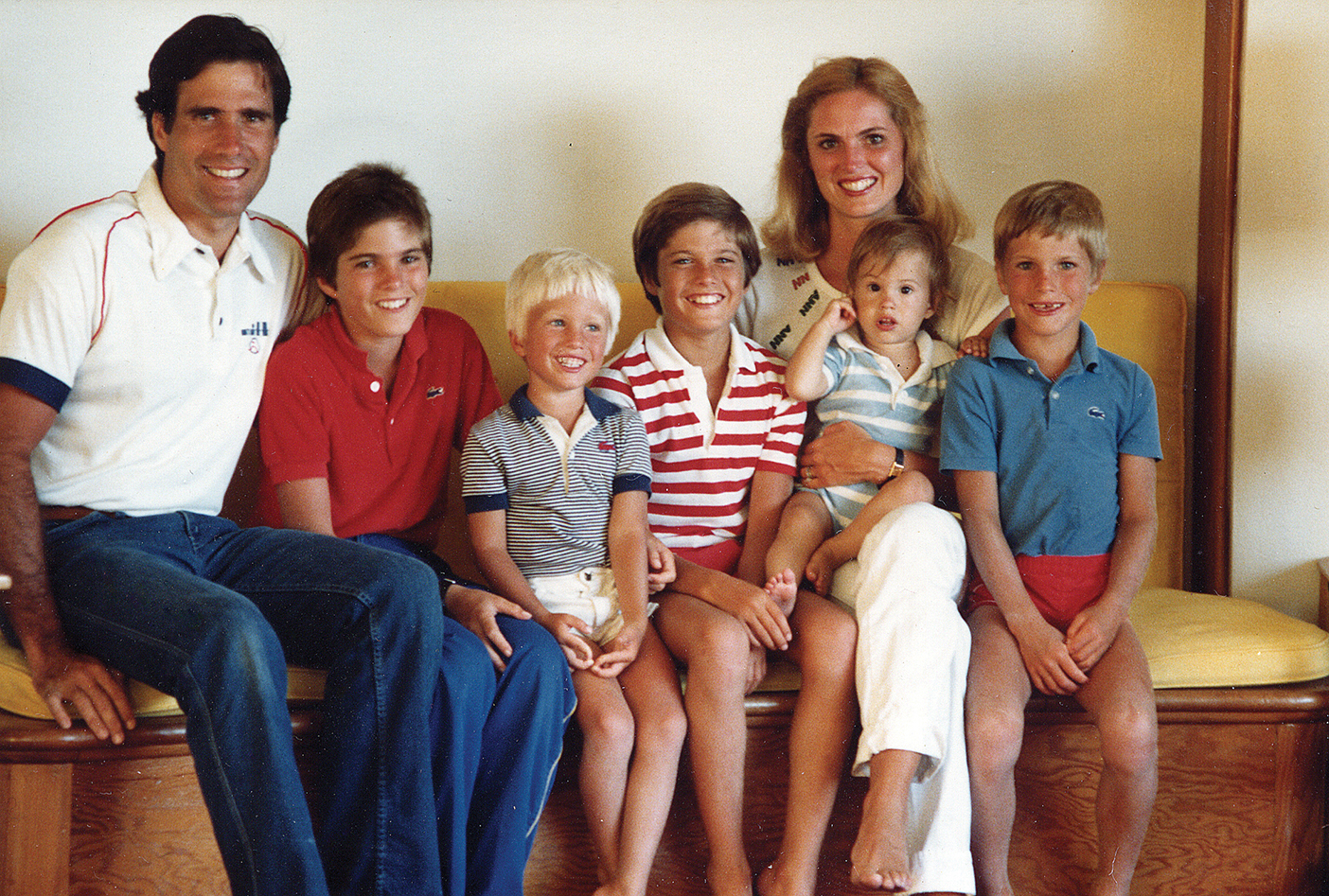
Now, some 20 years later, I have discovered something else about these core values, about living with integrity, about these fundamental measures of successful living: with these at our center, chance does not come into play in determining our success or failure. The ability to live with integrity with the core of our values of love, family, service, and devotion is entirely up to us. Fundamentally, this is the business of successful living.
On my father’s 80th birthday, I asked him what had brought him the most satisfaction in his life, what his greatest accomplishment was. He had been a three-term governor, United States Cabinet member, presidential candidate, CEO, multimillionaire, and prominent Church leader. His answer was immediate: “My relationship with your mother and with my children and grandchildren is my greatest accomplishment and satisfaction.”
Golda Meir, prime minister of Israel, voiced the same truth in an interview on the Today Show. She explained that being a mother was her life’s greatest accomplishment.

Both lived a life of fulfillment and success, not because of their worldly endeavors but in spite of them. They lived in harmony with values unaffected by the vagaries of markets or elections or praise.
If, as you are listening to me today, you are nodding your head in agreement, it’s only fair that I warn you that it will not be easy for you to focus your life on achieving your core values. Unfortunately, virtually the entire world around you will ridicule those values and a life based on them—perhaps not overtly, but implicitly in every medium that surrounds you. Some thousands of years ago, the prophet Isaiah looked forward to our times with this observation: “Woe unto them that call evil good, and good evil; that put darkness for light, and light for darkness; that put bitter for sweet, and sweet for bitter!” (Isa. 5:20).
There is ample evidence of the truth of his observations. In virtually every medium you will see and hear good called evil and evil good, light called dark and dark light. You will hear, for example, that fidelity is boring, that promiscuity is exciting. But if you succumb, you will find why “the love of many shall wax cold” (Matt. 24:12).
In airtime and public adulation, vengeance will rise above forgiveness, wealth above charity, power above loyalty, ease above work, luck above preparation. A relentless campaign will be waged for you to substitute the world’s values for your values, to cause you to abandon integrity, to subject your measurement of success to uncontrollable chance.
It is empowering, invigorating, and emancipating to live for the success you can control yourself, to live for your most deeply seated values and convictions.
I remember my father’s reaction in 1964 when running for governor. President Johnson had swamped Goldwater, and my dad’s pollsters confidently predicted that he’d be pulled under by the Democratic landslide. I was devastated. What would my friends at school think? My dad would be a loser. I looked at him. He looked calm—even relieved. Winning or losing wasn’t what was important, he told me. He had done what he felt was right by running in the first place and by speaking out on issues he cared about. The people’s votes didn’t affect that. He pulled out a familiar quote: “I aspired, and though I achieved not, I was satisfied.”
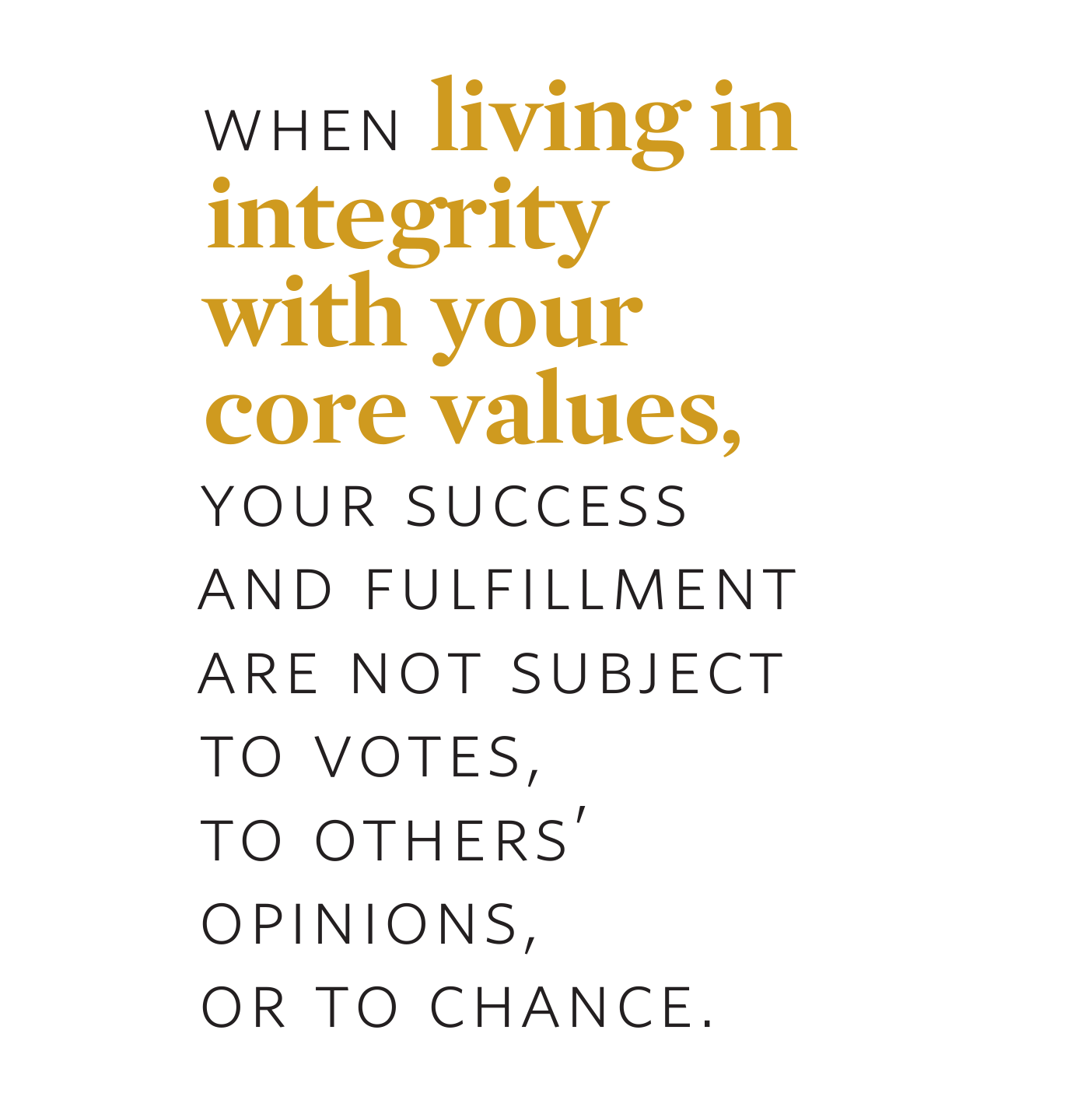
When living in integrity with your core values, your success and fulfillment are not subject to votes, to others’ opinions, or to chance.
When John Bennion went to Harvard Business School, he already had a couple of children, one of whom was severely disabled. Then he was called to serve in a Church bishopric. Because his wife, family, and devotion to God were his core values and measures of success, he accepted the call. He didn’t put it off to a time when it would be more convenient or explain how much work he would have at business school. Surely his grades ended up suffering a little, but his life did not. Now, some 25 years on, his family Christmas letter celebrates these same core values, the same life of integrity—a successful life.
You may agree with me now, but unless you purposefully hold fast to living first by your innermost values, you will not succeed. Instead, you will enthuse about talks that justify balancing your life, forgetting that “no man can serve two masters” (Matt. 6:24). You will read too much into your worldly successes and, perhaps just as dangerously, read too much into your worldly setbacks. They do not measure your worth nor define your success unless you choose for them to do so.
I have watched people of great worldly accomplishments who lived first with integrity for love, family, service, and devotion. In the words of Jacob, “And ye will seek them for the intent to do good” (Jacob 2:19).
I have also watched such people lose their money and their worldly esteem without it eroding their lives, happiness, or their measures of success, for their lives were built on the unshakable foundation of personal integrity, of pursuit of values the world cannot corrupt or disappoint.
Tomorrow it’s a new game for almost all of you. You will choose the bases to be won. Bold, beautiful billboards will beckon you to worldly success. But those bases may unpredictably elude you. Ultimately, even if you attain them, they will not satisfy.
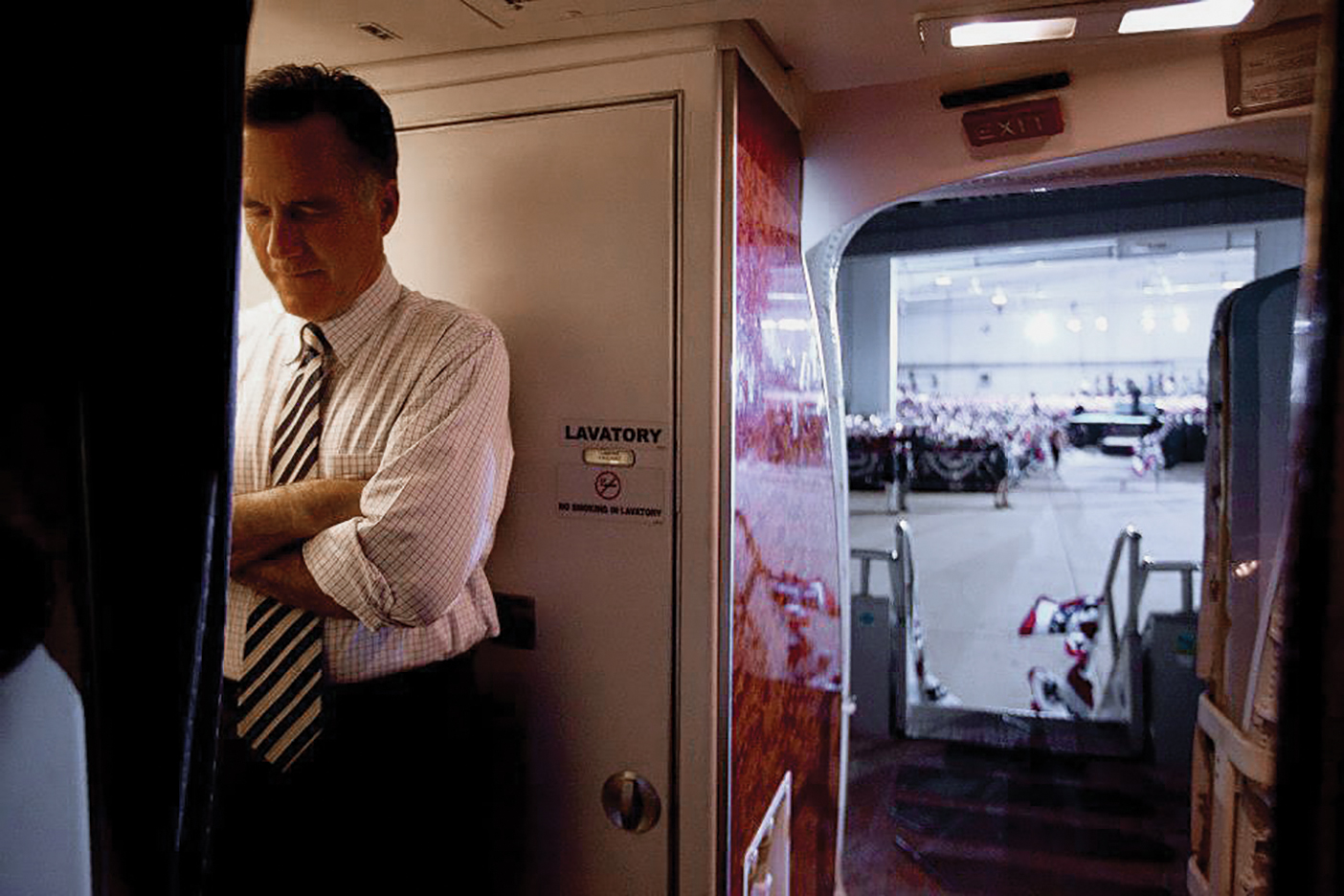
There are other bases to attempt, rescue, and win. These are ones that are in harmony with your most profound values. Achieving them is not a matter of serendipity or chance. With these, your life’s success is entirely in your own hands. A decision to live with integrity will make all the difference.
I conclude with a paraphrase of words from the Harrow School song:
Forty years on, growing older and older,
Shorter in wind, as in memory long,
Routs and discomfitures, rushes and
rallies,
Bases attempted, and rescued, and won.
When you look back and forgetfully
wonder
How will it seem to you, forty years on?
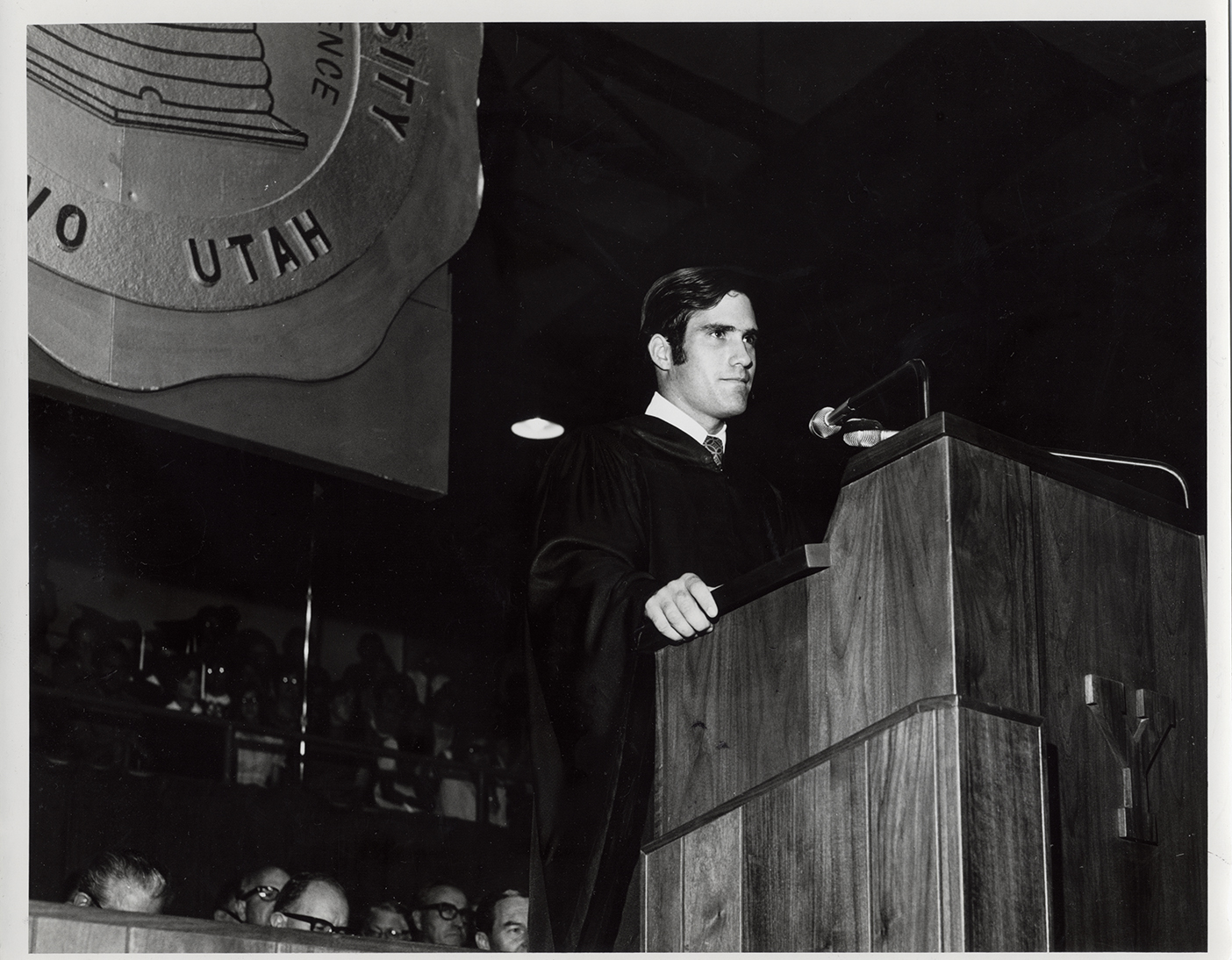
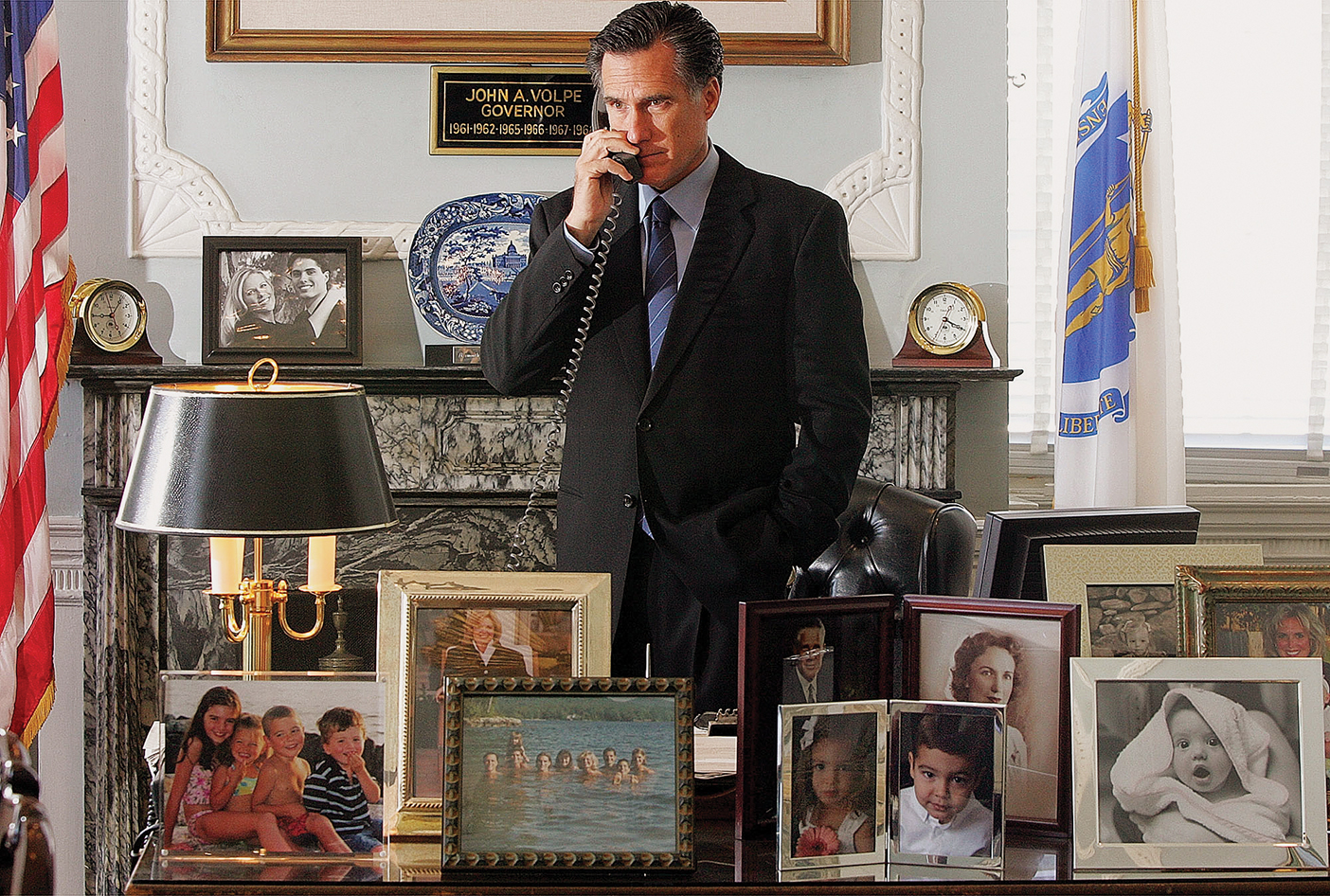
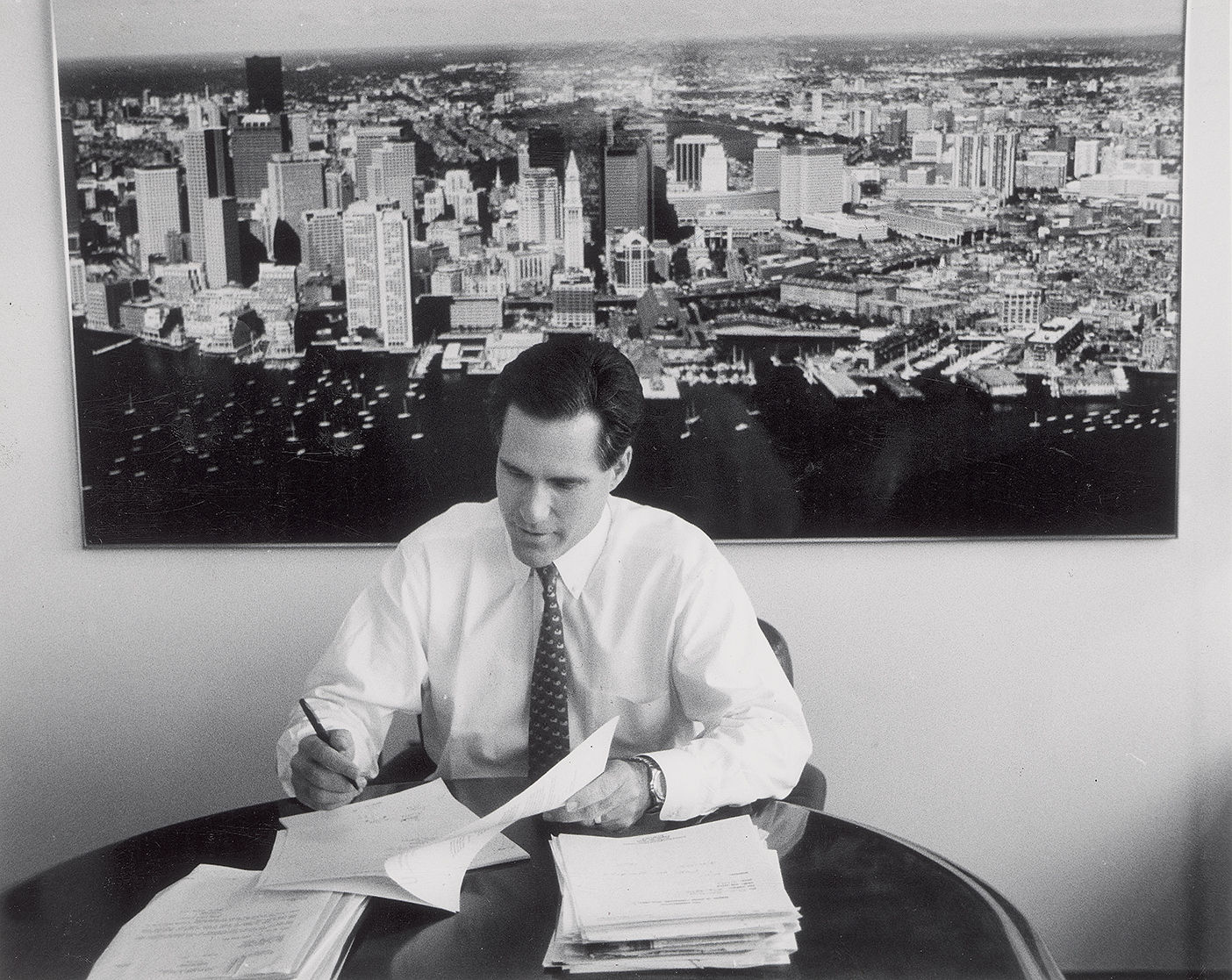
Mitt Romney and the Mormon Moment
By Brittany Karford Rogers (BA ’07)
Among the crowd at BYU’s election-night viewing party on Nov. 6 were reporters from the Washington Post and the New York Times—just two of the many media outlets that came calling on BYU during the presidential campaign of 2012. There, crammed shoulder-to-shoulder with students in BYU’s Varsity Theatre, they interviewed partygoers amid the euphoria that erupted with each swing-state announcement, red or blue.
Yes, there was a lot of blue. Red too.
The national publications’ interest in the event is part of a larger story—the Mormon moment—created by the candidacy of BYU alumnus W. Mitt Romney (BA ’71). It’s the story of what this moment means in the political and religious landscape.
This particular Mormon moment—more months than moment—came with the heightened media exposure, curiosity, scrutiny, and buzz surrounding the LDS faith and culture as Romney sought to become the first Latter-day Saint to win the nomination of a major U.S. political party.

But it is not the first Mormon moment. A Mormon moment happens every decade or so, says history professor J. Spencer Fluhman (BA ’98), who studies Mormonism in the American mind. “In fact, the term ‘Mormon moment’ was coined in 2002 with the Olympics in Salt Lake City,” he says.
And the moment does not necessarily belong to Mormons alone. “Both candidates were in the minority, racially or religiously,” says Fluhman. He notes that this makes the 2012 election a defining moment for diversity in America at large—a moment for Americans to ask, “When we say, ‘We, the People,’ what does it look like?” and “Who do we think the ‘we’ is? . . . How big does the circle get?”
Political science professor J. Quin Monson (BA ’96, MA ’96) has studied that circle and Latter-day Saints’ place in it—specifically, how Americans perceive Latter-day Saints. Some of his research has shown that there are no social norms moderating anti-Mormon statements. “In other words, it’s still OK to publicly express anti-Mormon sentiment and not receive the social disapproval of those around you,” says Monson. But despite this finding, the 2012 moment gives him reason to think that perceptions are changing.
Looking at the media coverage in the final months of the campaign, he says, “There [was] an unwillingness to do a lot of stories about Mitt Romney’s religion. Mitt Romney . . . stayed away from it, and the media . . . covered the campaign without delving into the details of Mormonism too much. There [was] a hesitancy to go there.” Political science professor Kelly D. Patterson (BA ’82, MA ’84) agrees: “The negative stories are there, but they’re few and far between. I don’t think [they] dominated.” At the very least, the exposure gave the nation a chance to learn more about Latter-day Saints, says Monson, “because most people don’t know one. In our survey data, only about 15 percent of Americans actually know a Mormon personally.”
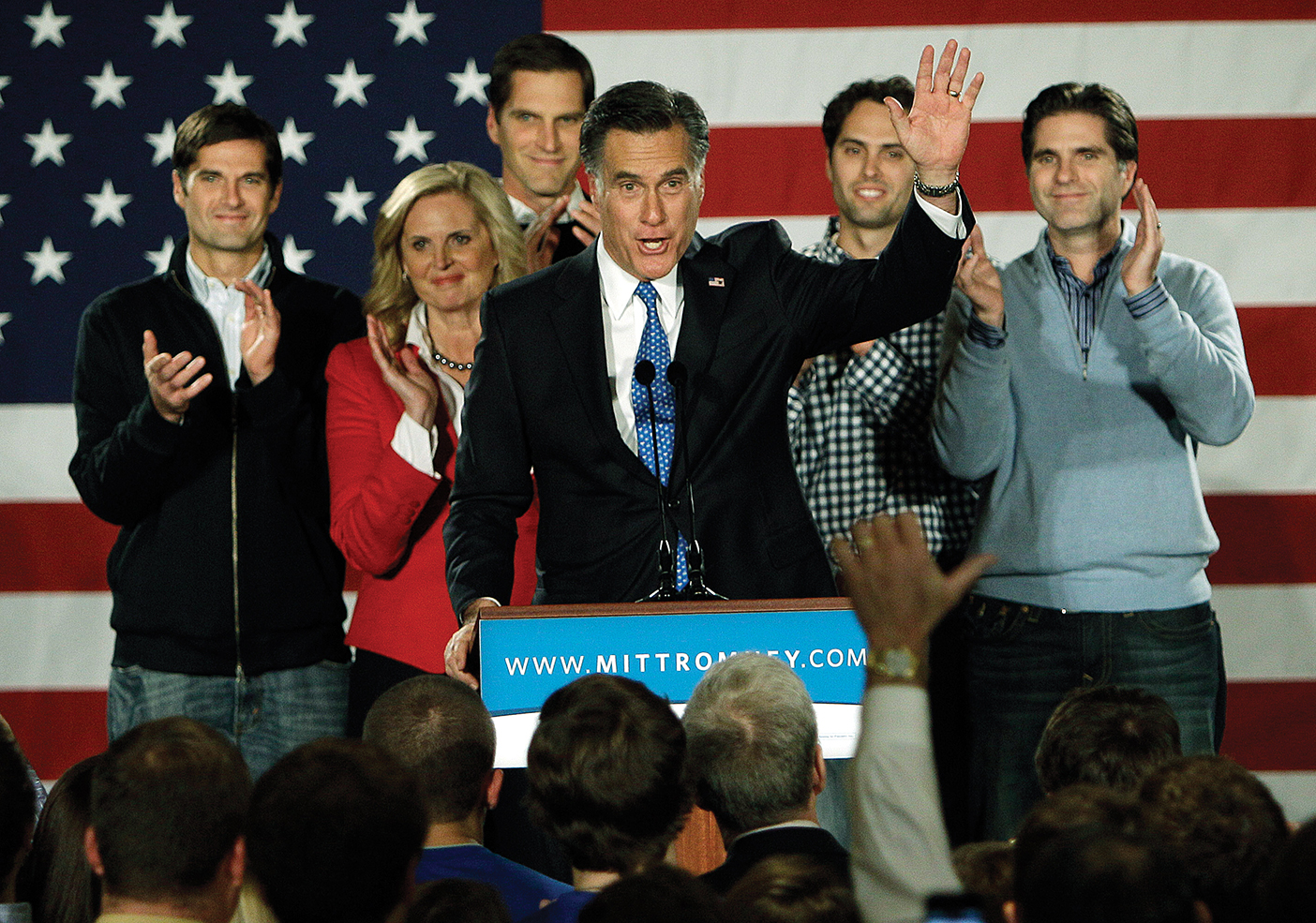
Monson and Patterson have also examined how Latter-day Saints reacted to their time in the limelight. The findings: more than 70 percent thought Romney’s candidacy was a positive development for the Church. Members also found Romney to be a positive symbol of their faith. “He has the highest rating—up there with Steve Young and some of the other popular figures in LDS culture,” says Patterson. The Mormon moment also shed light on Mormon voting behavior. “We thought we might see Mormon voters [of all parties] flock to Mitt Romney,” says Monson. “But really, remarkably, it looks a lot like earlier elections.” While about 25 percent of the Mormons who voted for Obama in 2008 moved toward Romney, Latter-day Saints otherwise voted according to their personal party preference.
With such insights into Latter-day Saint Americans, and with a connection to the Republican nominee, BYU’s Political Science Department was heavily drawn upon for commentary from news outlets the world over in the election season. “I certainly think we have a more prominent national voice than we’ve ever had before,” says political science professor Christopher F. Karpowitz (BA ’94, MA ’96), and he extends that acknowledgement to BYU as well. “I think it says a lot that an alumnus of our institution was seen as a credible representative for one of the two major political parties in the United States. I think that says something about the level of acceptance and the level of acknowledgement of BYU and the education that we provide here.”
Feedback: Send comments on this article to magazine@byu.edu


